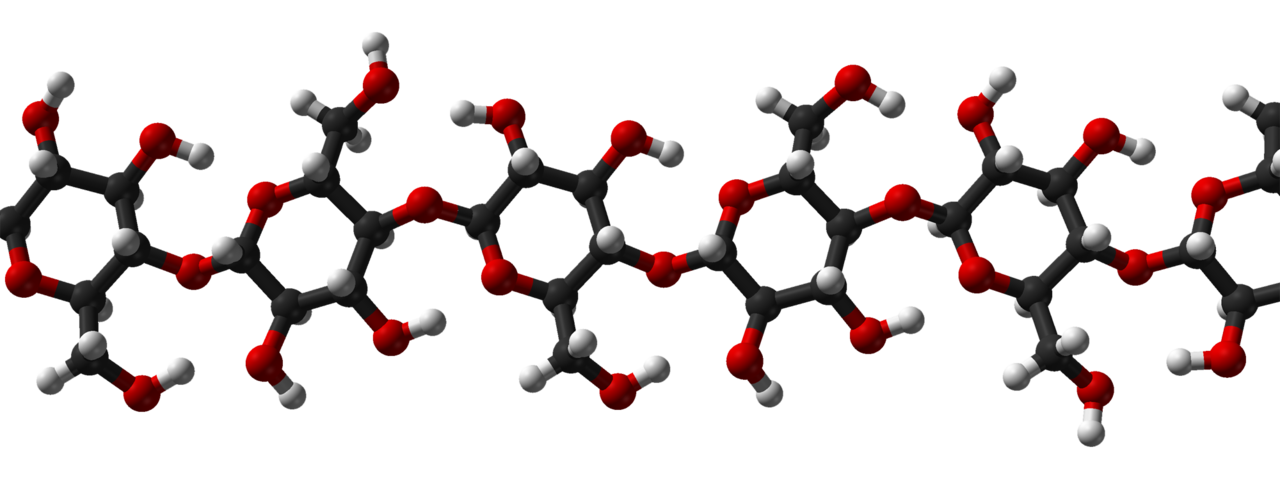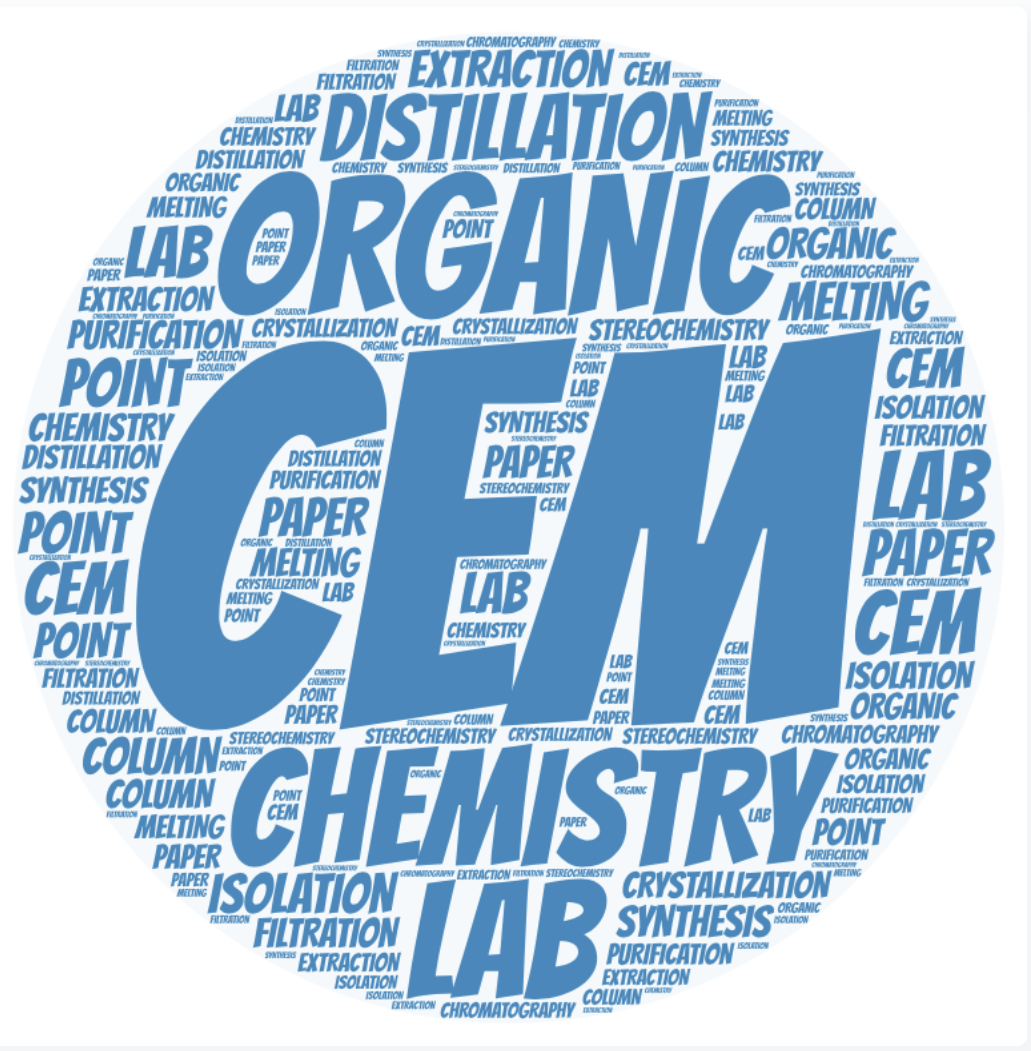

CEM143 Laboratory
The lab meets in room 124 Chemistry
![]()

For the Spring of 2020 Labs begin Monday, January 13.
No Labs the week of January 20 to January 23.
Safety goggles are required for ALL labs.
Laboratory manual is required at first lab.
WARNING: Students enrolled in CEM 143 who do not attend the first lab may have their enrollment deleted unless the undergraduate office is notified prior to the first lab meeting.
No shorts, sandals or open-toed shoes are allowed in laboratories.
(Chemistry Department Teaching Labs Dress Code)
If you CHECK IN for the lab you will have to CHECK OUT at the end, even if you drop the class, otherwise you will be charged a fee!
![]()
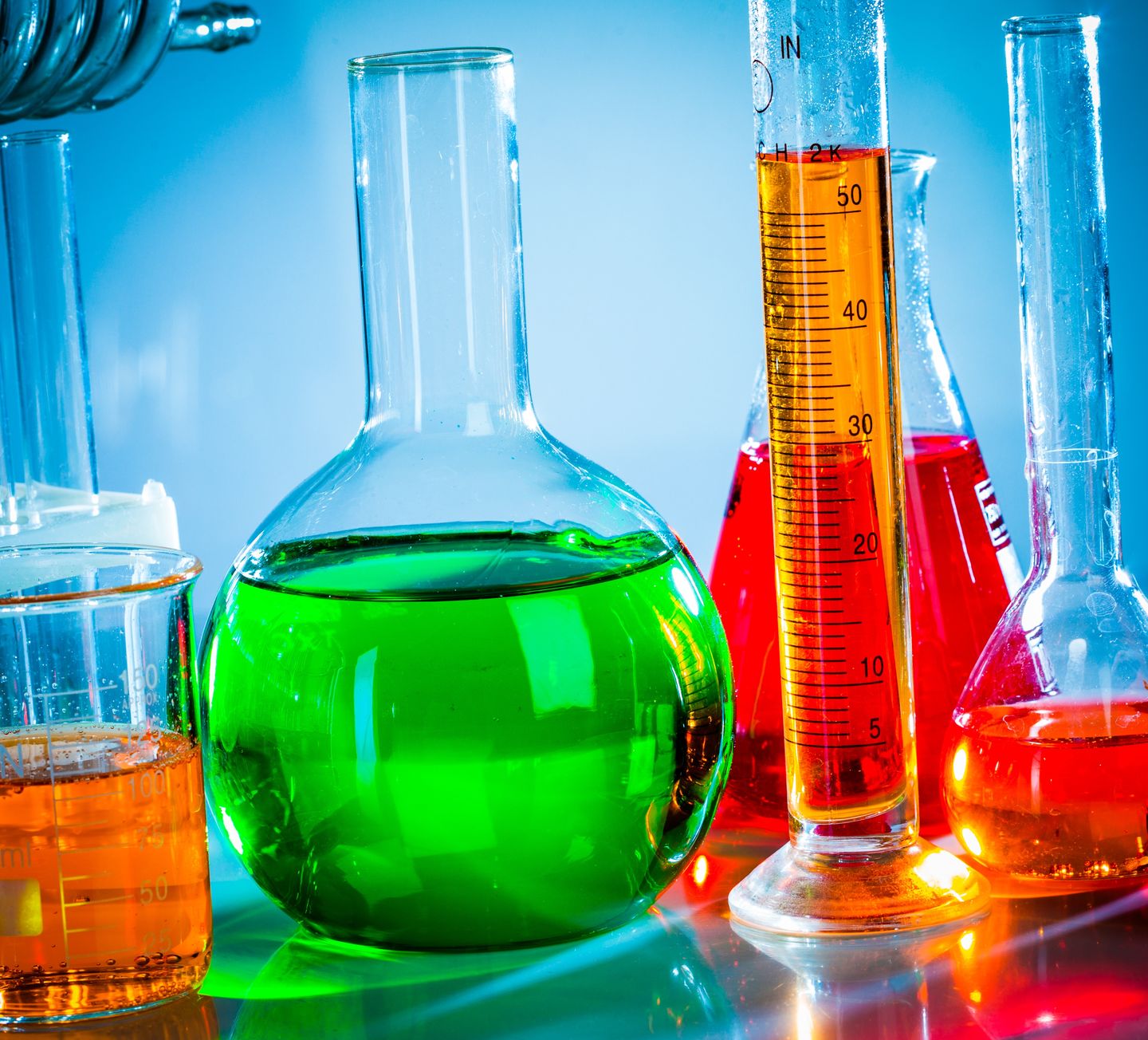
![]()
Lab Manual
A. Azadnia "CEM143, Survey of Organic Chemistry Laboratory Manual", 6th Edition, 2016
![]()
Lab Coordinators
Dr. Ardeshir Azadnia, Rm 128, 517-353-1125
azadnia@msu.edu
Mr. Dave Voss, Rm 134, 517-353-1129
voss@chemistry.msu.edu
![]()
Lab Make Up Policy
If for whatever reason you miss a lab or you know in advance that you cannot make your lab a specific date you can make up that lab DURING THE SAME WEEK it was supposed to run, in another section. You CANNOT make up any lab the week after.
If you need to make up a lab, you need to get a Lab Make Up pink slip from either Dr. Azadnia or Mr. Voss.
Please contact them by email or just drop by their office for a make up slip.
The TAs WILL NOT ALLOW YOU to make up any lab WITHOUT a make up slip.
![]()
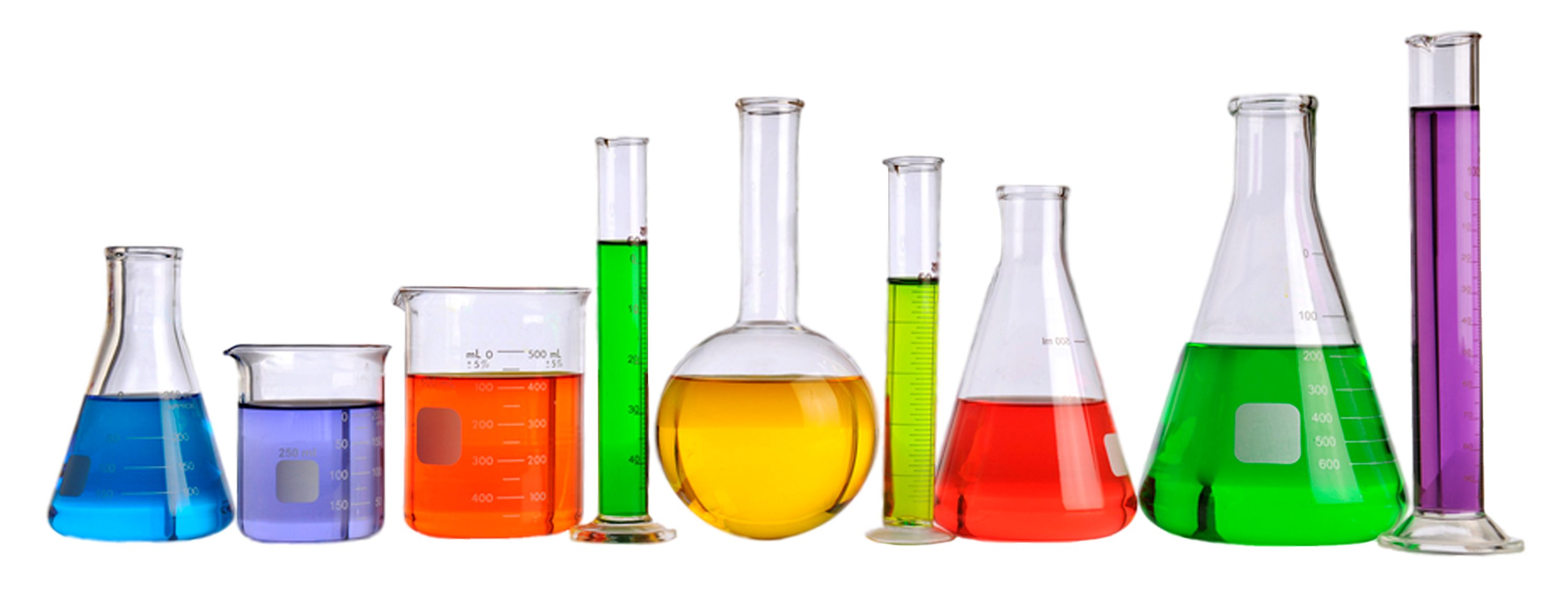
![]()
Experiment Schedule
January 13-16: Experiment #1, Check In / Paper Chromatography
January 20-23: No Experiment
January 27-30: Experiment #2 , Melting Point
February 3-6: Experiment #3, Distillation of Ethanol/Acetone
February 10-13: Experiment #5, Preparation of Methyl 3-Nitrobenzoate
February 17-20: Experiment #6, Molecular Models (Stereochemistry)
February 24-27: Experiment #7, Isolation of an Active Drug
March 2-5: No Experiment, Spring Break
March 9-12: Experiment #4, Acid-Base Extraction
March 16-19: Experiment #8, Azo Dye Synthesis, Orange II
March 23-26: Experiment #9, Synthesis of Aspirin / Preparation of Soap
March 30 - April 2: Experiment #10, Identification of an Unknown by Derivatization
April 6-9: Experiment #11, Structure and Reactivity of Carbohydrates/ Check Out Week
April 13-16: Experiment #12, Consumer Product Project (Mandatory)
![]()
Consumer Product Project Details
For this lab, you will need to choose an Organic Molecule with 5 or more carbons and make a poster about it, that you will have to present during the last lab period to your whole section. You will need to get your molecule PRE-APPROVED by your TA and two students in the same section CANNOT have the same molecule.
Although in all other labs you work in pairs, EACH STUDENT HAS TO MAKE HIS or HER OWN POSTER for this last lab!
Some Suggested Molecules or groups of molecules that you can consider when choosing a molecule with 5 or more carbons include:
One of the 20 natural amino acids (google them!)
A carbohydrate / sugar (i.e. fructose, glucose, ribose, dextrose, cellulose, starch)
A natural product (chemicals isolated from natural sources)
Antibiotics i.e. penicillin, Vancomycin, Ampicillin
Any other pharmaceutical you might be interested in!
DNA, RNA bases (adenine, cytosine, thymine, guanine)
Crude oil products
Fragrant /odor molecules (i.e. geranyl, terpenes, aromatic)
Organic molecules in food / drinks (caffeine)
Organic Molecules as food preservatives/colors (i.e. red40, BHA, BHT)
Organic Polymers / Materials (i.e. Vinyl polymers, polyamides, etc)
Organic molecules in cosmetics (emulsifiers, surfactants, colors)
…. Or anything else you wish!!! Organic Chemistry is everywhere!!!
![]()
Laboratory Glassware
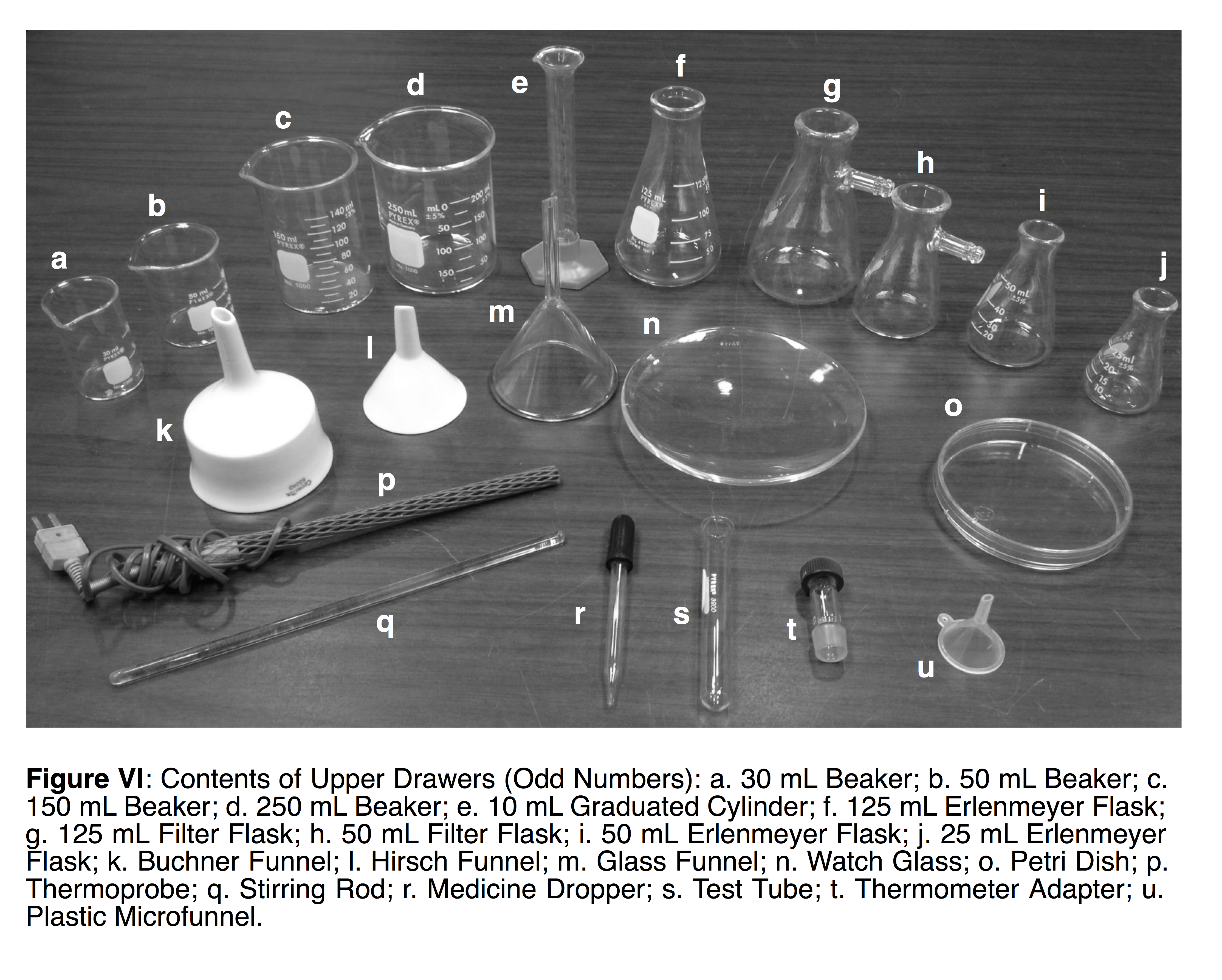
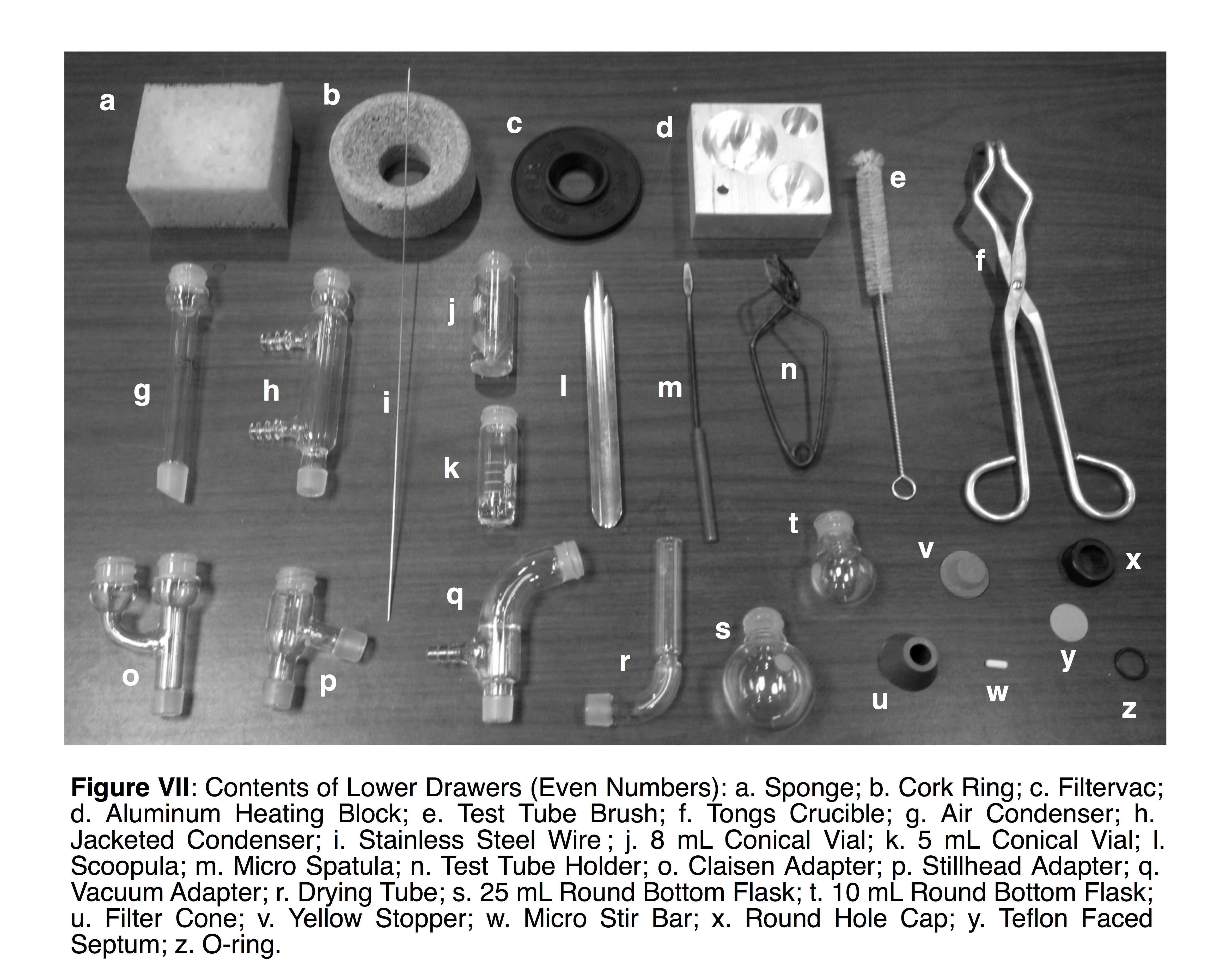
![]()
Useful YouTube Chemistry Techniques Links
The following YouTube links related to organic chemistry techniques and experiments are similar to the techniques you will be using in the lab and therefore would be useful to watch before attending your lab. Keep in mind, these are just so you have an idea what is coming. The actual experimental details, amounts and processes might be different. Still, videos like these can be very useful to prepare you for the lab.
Paper Chromatography
Chromatography
Melting Point Determination
Extraction
Vacuum Filtration
Distillation
Pipette Column
Stereochemistry
Active Drug Isolation
Azo Dye Synthesis
Synthesis of Aspirin
Preparation of Soap
![]()
Useful Class Links
